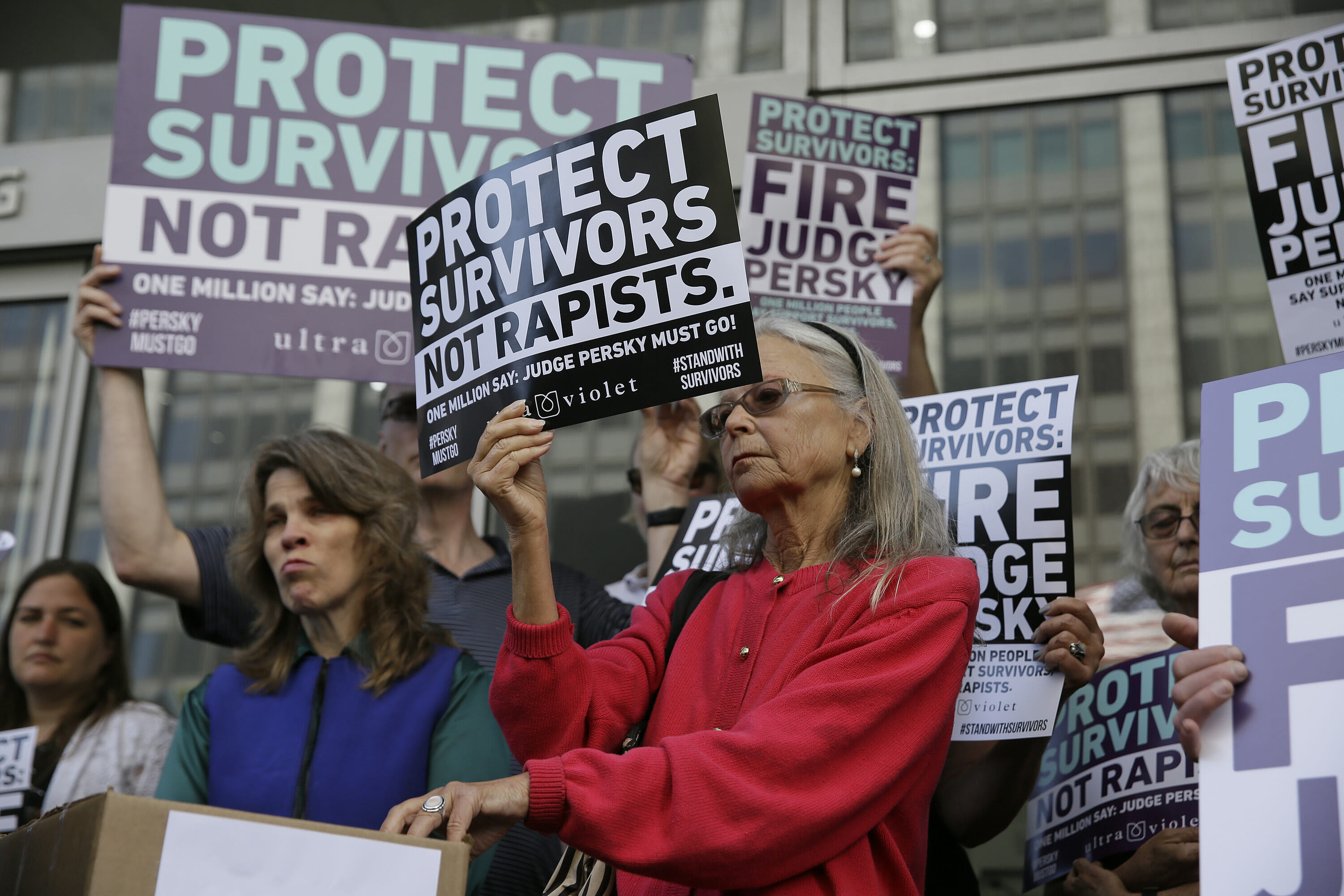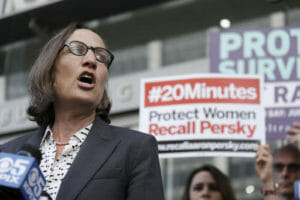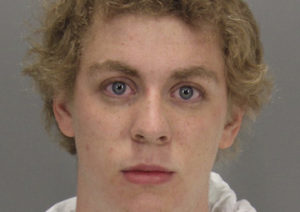Voters Choose Woman to Replace Recalled Judge
Cindy Hendrickson is known for her work in support of marginalized communities. She replaces Judge Aaron Persky, who was recalled for issuing a light sentence in a 2016 Stanford sexual assault case. Activists from UltraViolet, a national women’s advocacy organization, rallied for the removal of Judge Aaron Persky. (Eric Risberg / AP)
Activists from UltraViolet, a national women’s advocacy organization, rallied for the removal of Judge Aaron Persky. (Eric Risberg / AP)
On Tuesday, voters in California’s Santa Clara County recalled Judge Aaron Persky, who presided over the highly publicized trial of Brock Turner, a Stanford student convicted of sexual assault. Persky gave Turner a controversially light sentence, which made Turner a symbol for many critics who claim that judicial bias favors defendants from privileged backgrounds. Voters chose Judge Cindy Hendrickson, known for her work in support of marginalized communities, to replace Persky.
Hendrickson, who said she supported the effort to recall Persky, told Newsweek in 2017, “I’m devoted to every single person in Santa Clara County feeling like when they go to court, they have [a] chance at being heard and having a fair result. Maybe not the result they want, but as fair a result as anybody else. The deck is not stacked against them.”
Like Persky, Hendrickson is a graduate of Stanford. She completed law school at UCLA and, according to her Crowdpac fundraising page, served as a civil litigator for five years and a prosecutor for 23 years. Hendrickson also shared her personal story on her page:
I grew up as the daughter of two public servants who raised eleven children, six biological and five adopted. The task wasn’t always easy either socially or financially given the large number of children and the cultural norms in Alexandria, Virginia in the 1960’s and 70’s. So I grew accustomed at an early age to the idea that doing the right thing is more important than being liked or comfortable, and that serving others is the highest calling.
Hendrickson emphasized her work for marginalized communities, adding, “I have been a strong advocate for the most vulnerable victims in our society: elders, dependent adults, children, and domestic violence and sexual assault victims.” She cited her legal focus on preventing financial fraud against the elderly and efforts to put sexual assault perpetrators behind bars.
According to the Los Angeles Times, 59 percent of those who cast ballots voted for Persky’s recall. New York Times data show that Hendrickson won 70 percent of votes (with more than half of precincts reporting) in the initial returns.
For many voting on the recall effort, Hendrickson represents Persky’s opposite. Turner’s trial, a result of his assault on an unconscious woman, was rare in that it included the testimony of two eyewitnesses who stumbled upon Turner as he was engaged in the act and chased him down. The case also made headlines because of Turner’s status as a valued member of Stanford’s swim team, his father’s assertion that jail time was “a steep price to pay for 20 minutes of action out of his 20-plus years of life” and the victim’s harrowing testimony read in court.
The maximum sentence Persky could have given Turner was 14 years, but he sentenced him instead to six months in jail, and Turner was released for good behavior after serving just three months behind bars. Michele Landis Dauber, the Stanford Law School professor who spearheaded the effort to recall Persky, told Newsweek, “The message sent by the Turner sentence to perpetrators [was], ‘Don’t worry: Even if you’re caught red-handed, literally, and convicted by a jury, the system will have your back.’ To victims, [it] said, ‘Don’t bother calling 911, because even if you put yourself through the trauma of the rape kit and the trial and you prevail, your perpetrator will not experience any serious consequences.’”
Your support matters…Independent journalism is under threat and overshadowed by heavily funded mainstream media.
You can help level the playing field. Become a member.
Your tax-deductible contribution keeps us digging beneath the headlines to give you thought-provoking, investigative reporting and analysis that unearths what's really happening- without compromise.
Give today to support our courageous, independent journalists.



You need to be a supporter to comment.
There are currently no responses to this article.
Be the first to respond.